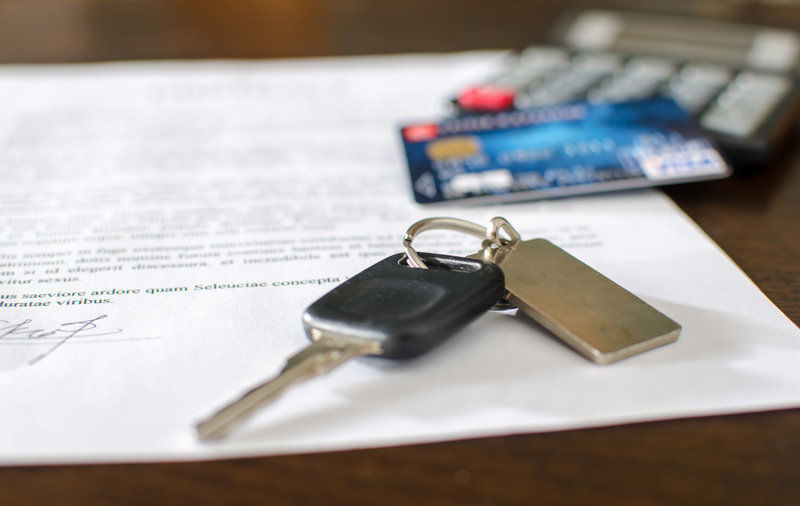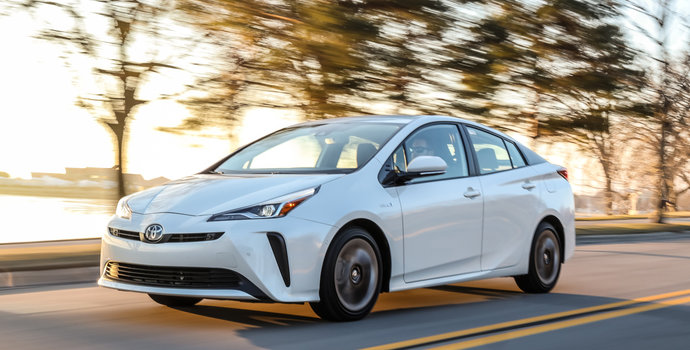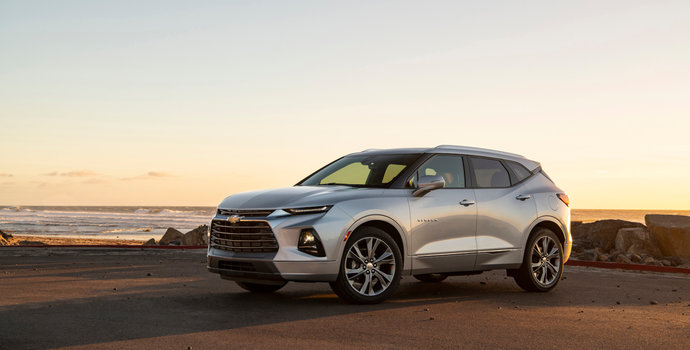Purchasing a used vehicle is a significant decision, and planning your budget properly is one of the most important steps in the process. At AutoPark Barrie, we understand that the price listed on the windshield is only part of the equation. A realistic and complete budget includes the ongoing costs of ownership—expenses that can vary widely depending on the vehicle, your lifestyle, and even where you live. Taking time to calculate these costs in advance can prevent future financial stress and help you find a vehicle that fits not only your needs, but also your long-term budget.
Explore Our Pre-Owned Inventory
Looking for a pre-owned vehicle? Explore Autopark Barrie's collection of pre-owned vehicles designed to fit your life. With second chance financing, no haggle pricing, and 7 day exchange policy, there’s a perfect match waiting for you.
Shop Now >
Fuel Costs: Efficiency Matters More Than You Think
Fuel is one of the most consistent expenses associated with owning a vehicle. The cost of fuel can be underestimated when budgeting, especially if fuel prices rise or if you drive more than anticipated. Fortunately, fuel costs can be estimated fairly accurately with a few data points: the vehicle’s fuel consumption rating (measured in litres per 100 kilometres), the number of kilometres you expect to drive each month, and the average cost of fuel in your area.
Example: Let’s say you’re considering a vehicle with a fuel economy of 8.5 L/100 km, you drive about 1,500 km per month, and gas in Barrie is averaging $1.65 per litre.
- Multiply the fuel consumption by total distance: (8.5 ÷ 100) × 1,500 = 127.5 litres
- Multiply the result by the fuel price: 127.5 × $1.65 = $210.38 per month
That’s over $2,500 per year. This example highlights how two vehicles with different fuel economies can have dramatically different annual fuel costs. A more fuel-efficient model may have a higher purchase price but lower operating costs—something worth considering.
Insurance: Variable, But Predictable with the Right Research

Insurance premiums are another essential cost that can vary depending on the vehicle, your driving history, your age, and even your postal code. Sportier or luxury models typically cost more to insure due to their repair costs and higher theft risk. Older vehicles may be cheaper to insure, but this isn't always the case. Some older models lack modern safety features, which could affect rates.
Tips for Budgeting Insurance Costs:
- Get quotes before you buy. Many insurance companies offer quick online estimates.
- Ask about discounts. Combining home and auto insurance, installing winter tires, or maintaining a clean driving record may lower your premium.
- Factor in changes to your policy. Moving, commuting more often, or adding drivers to your plan can all affect insurance costs.
It’s also wise to speak with a broker who can compare rates across multiple providers and help you choose a vehicle that meets your insurance budget.
Maintenance and Servicing: Reliability Can Save You Money
All vehicles require maintenance, but some require less than others. A reliable vehicle with a strong service history and accessible parts will generally cost less to maintain over time. On the other hand, vehicles from luxury brands or rare models can come with higher costs due to specialized service and limited parts availability.
Routine costs to budget for include:
- Oil changes (every 5,000–10,000 km)
- Brake pad replacements
- Fluids (coolant, transmission, brake fluid)
- Air filters and cabin filters
Planning Tip: Allocate a monthly maintenance allowance of at least $60–$100 depending on the age and type of vehicle. This can help you cover routine services and unexpected repairs without disrupting your overall financial stability.
At Auto Park Barrie, every vehicle is inspected before being put on sale to help ensure peace of mind—but even the most reliable vehicle needs regular upkeep to stay in good condition.
Tires and Wear-and-Tear Items: Often Forgotten, Always Important

Tires are among the most important—and sometimes most overlooked—components of your vehicle budget. In Ontario, having both winter and all-season (or summer) tires is recommended due to severe seasonal shifts. You may also need to consider tire storage fees if you don’t have the space to keep a second set at home.
Estimated costs:
- A set of four all-season tires: $700–$1,000
- A set of four winter tires: $800–$1,200
- Tire storage (if needed): $60–$100 per season
Other regular replacement items include:
- Wiper blades (usually replaced once or twice per year)
- Battery (typically every 4–5 years)
- Brake components (wear depends on driving habits and climate)
These costs add up over time, and it’s essential to anticipate them when setting your monthly budget.
Other Fees: Location-Based Costs That Add Up
Depending on where you live and how you use your vehicle, you may encounter a variety of additional costs:
- Parking fees: Monthly passes, metered parking, and residential permits can all add significant recurring charges.
- Toll roads: If your commute includes toll routes (such as Highway 407 in the GTA), the cost can rise quickly—especially if you're driving daily.
- License plate renewal and emissions tests (when required): While these are infrequent, they should be considered.
Even if each of these expenses seems small on its own, together they can increase your total monthly cost substantially.
Putting It All Together: Estimating Your Total Monthly Cost

The key to staying within your budget isn’t just finding the right vehicle at the right price—it’s knowing how much that vehicle will cost you every month beyond the purchase. We recommend creating a detailed ownership budget before committing. Here’s a simplified example:
- Financing payment or monthly budget: $350
- Fuel: $210
- Insurance: $140
- Maintenance: $80
- Tires and wear items (averaged monthly): $50
- Parking/tolls/fees: $60
Total monthly ownership cost: $890
This total gives you a more accurate picture of whether a particular vehicle fits your financial reality. If that number is higher than your available budget, it may be worth exploring more fuel-efficient, lower-maintenance, or lower-insurance models.

Final Thoughts: AutoPark Barrie Is Here to Help You Plan Wisely
At AutoPark Barrie, we offer a wide range of high-quality pre-owned vehicles that suit different lifestyles and budgets. Our team is here to help you not only find the right vehicle, but also guide you through the budgeting process to ensure you're confident in your purchase. From calculating monthly fuel costs to understanding insurance rates and long-term maintenance, we believe informed decisions lead to satisfied drivers.
Planning properly today ensures peace of mind tomorrow—and that’s something every vehicle owner deserves.









